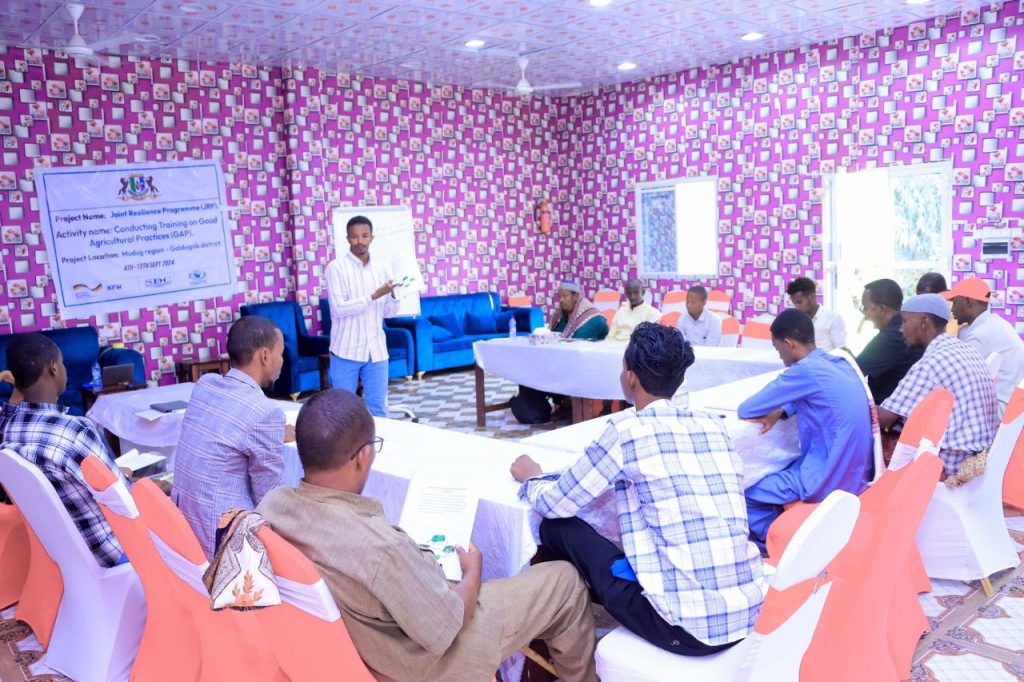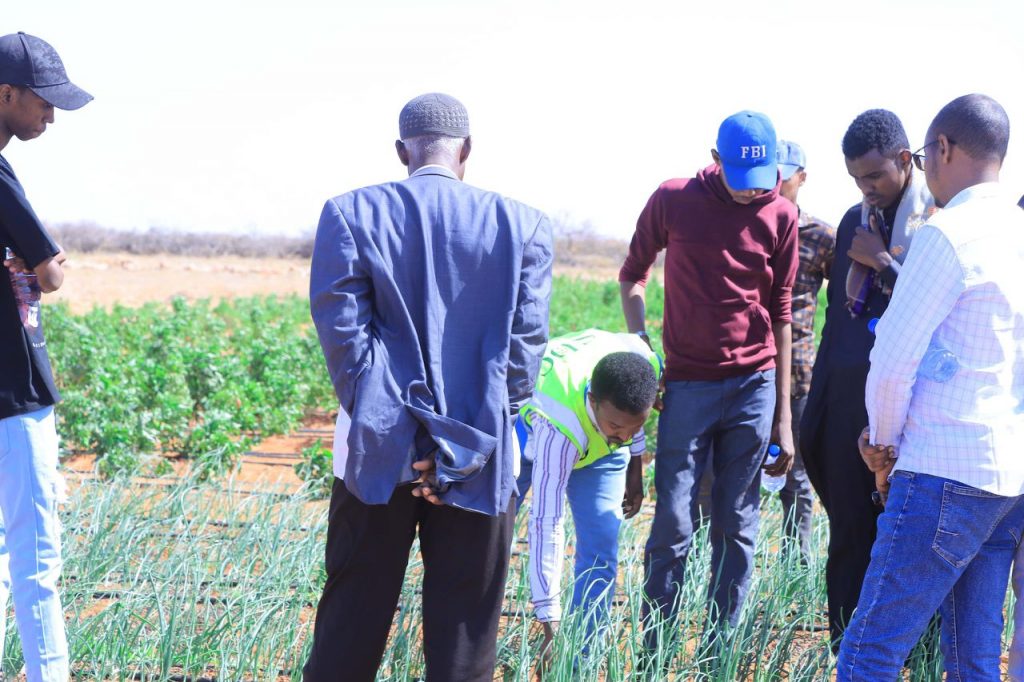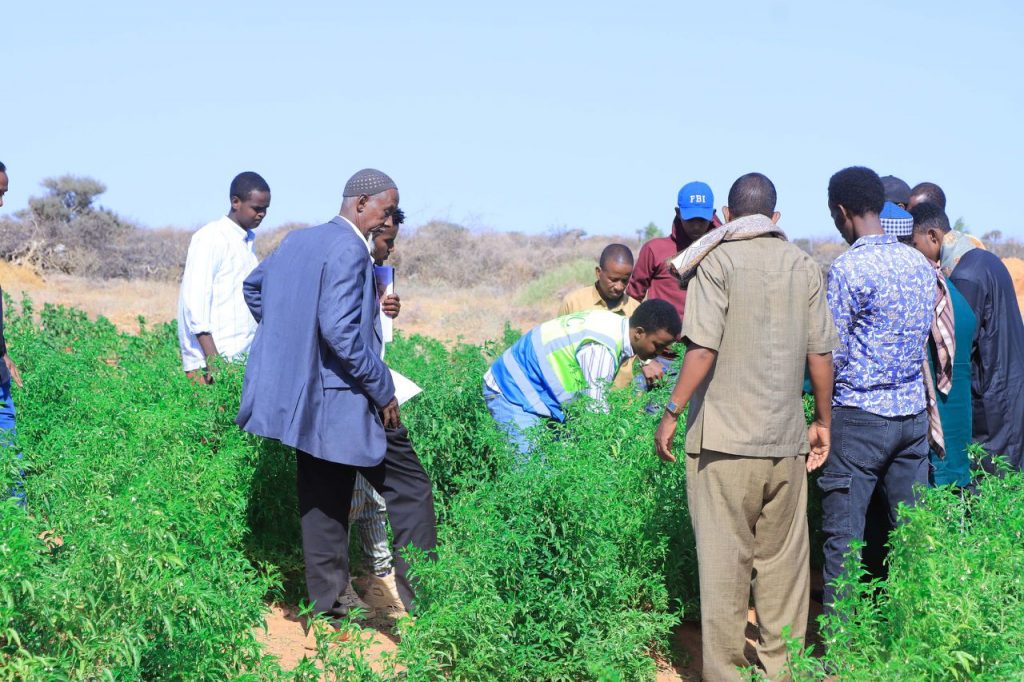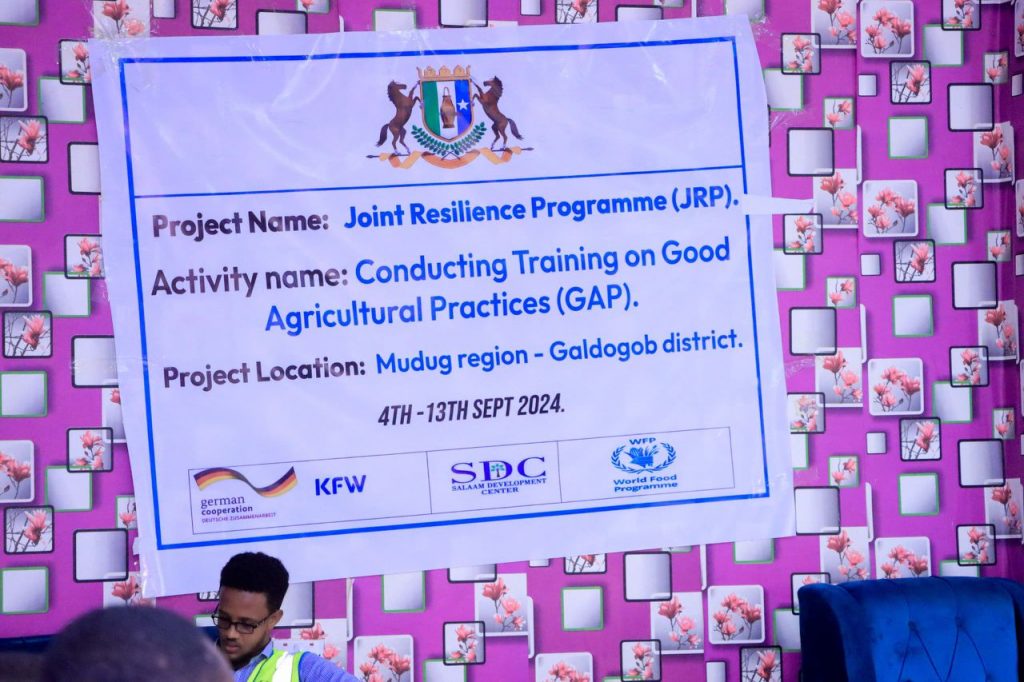In an effort to enhance food security and promote sustainable agricultural practices, Salaam Development Center (SDC), in collaboration with the World Food Programme (WFP) and local authorities, has launched an extensive 20-day training program on Good Agricultural Practices (GAP) in the Bursalah and Galdogob districts. This training is designed to equip local farming cooperatives with the knowledge and skills necessary to boost productivity while maintaining environmentally friendly farming techniques.

Training Overview
The training, aimed at 40 local participants, is facilitated by expert agronomists who offer a blend of theoretical lessons and practical farm applications. Participants have responded with enthusiasm, noting the value of hands-on experience and the depth of insight provided by the trainers. The curriculum covers essential topics, such as crop management, soil fertility, pest control, and sustainable water use, with a strong emphasis on applying these practices to local agricultural challenges.
Impact on Food Security and Sustainability
The GAP training is part of the broader JRP Project, which aims to improve the productive capacities of local cooperatives farms while fostering a more resilient agricultural sector. By equipping farmers with modern, sustainable techniques, the initiative directly addresses the food security concerns that have long plagued the region. Furthermore, this project aligns with global efforts to combat climate change by promoting climate-friendly farming methods that reduce environmental degradation.

Collaboration and Community Engagement
The success of this initiative would not be possible without the strong support from our partners. We extend our heartfelt thanks to the WFP and local authorities who have worked tirelessly to support this training. Their involvement not only strengthens the project’s impact but also helps build long-term capacity within these farming communities.
Through these collaborative efforts, we are confident that this training will empower farmers to adopt sustainable practices, ensuring long-term food security and improved livelihoods for the people of Bursalah and Galdogob.


